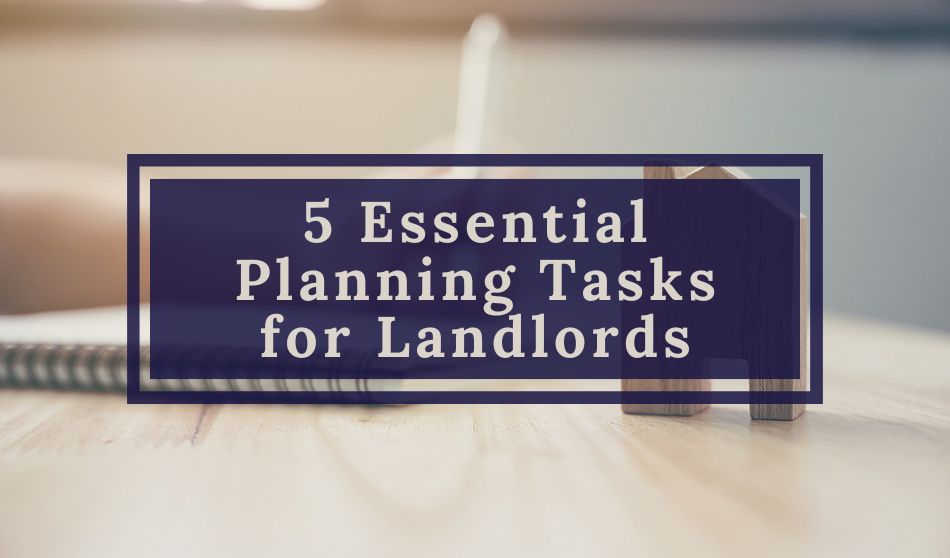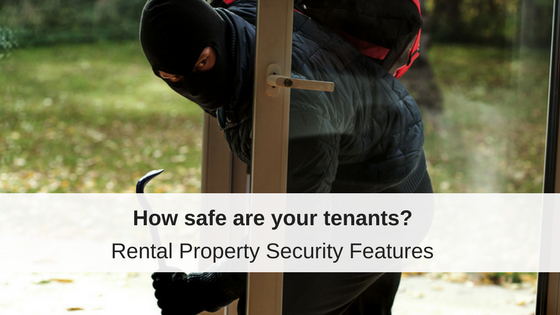
If you are a real estate investor who is choosing to self-manage your rental properties, there are specific planning and research tasks you should consider. This overview of essential planning tasks for landlords will help you ensure a successful rental business.
Key Ideas:
- Create a maintenance plan and budget accordingly.
- Establish legal and comprehensive written documentation in the form of both an official tenant screening plan and lease agreement.
- Develop your customer service skills to ensure a great landlord-tenant relationship.
Taking the first steps to manage your rental property as a DIY landlord involves a lot of preparation and planning, but the day-to-day tasks of being a landlord are what many focus on when they decide to invest in a rental property. Many landlords, particularly first-time landlords and investors, fail to put systems and specific procedures in place to make everyday landlord tasks more streamlined and keep the rental business successful.
Completing these essential planning tasks will ensure you have a strategy in place to maintain your property, acquire great tenants, and create a great reputation as a landlord.
Note: New to self-mangement?
Learn more: Your First Steps to Successfully Self-Manage a Rental Property
1. Create a Maintenance Schedule
Don’t wait to tend to maintenance needs until they are emergent. A regular maintenance schedule can prevent damage over time. Emergency maintenance is often far more costly than the investment associated with regular inspections and upkeep. Each season, make a plan to tackle weather-related tasks, and be sure to schedule a time annually for any yearly maintenance needs.
Learn more: Rental Property Maintenance: The Ultimate Guide – Free eBook
Remember that regular maintenance doesn’t preclude your rental property from experiencing an emergency, so be sure to save for your property’s upkeep. Creating a savings buffer is imperative if you self-manage a rental. When attempting to create a budget, remember that while DIY maintenance can save you money, it will also cost you in time. Moreover, there are some maintenance jobs that may require a licensed professional. This can include HVAC specialists, plumbers, electricians, and pest or mold mitigation.
There are a few ways to think about calculating your savings needs for maintenance. These formulas offer general estimations; however, individual property conditions and various factors may influence actual maintenance expenses beyond these guidelines.
Maintenance Budget Calculations
- The 1% Rule: The 1% rule suggests allocating approximately 1% of your property’s value toward maintenance expenses annually.
- Square Footage Formula: This formula proposes a maintenance cost of $1 per square foot annually.
- Monthly Rental Formula: The monthly rental formula estimates maintenance costs at approximately 1.5 times the monthly rental rate for all annual maintenance expenditures, including taxes, insurance, repairs, and more.
Learn more: Beginners Guide to Property Maintenance for Rentals
2. Establish Your Tenant Screening Plan
One of your primary goals as a rental property owner or manager should include finding the most qualified tenant who will pay rent on time, follow lease terms, and take care of the property. Most importantly, you need to find this qualified tenant through legal avenues. The best way to find great tenants and avoid discrimination lawsuits is to create a set of written tenant screening criteria that are objective and legally appropriate.
These criteria can–and should–include tenant screening checks through a reputable source and the general criteria with which you will find a tenant that matches your application requirements.
General and basic tenant screening criteria can include:
- Verifiable income that is at least 3X monthly rent
- Minimum credit score of 600
- Copy of a photo ID
- No prior evictions
Your tenant screening plan should also list what types of background and screening reports you will utilize. Remember that not all tenant screening reports are the same, and choosing the best tenant screening reports requires a little extra research.
Learn more: Are All Tenant Screening Reports Created Equal?
A comprehensive tenant screening report bundle may include vital info such as:
- Nationwide Criminal Search
- Transunion Credit Report or Report Card
- Nationwide Eviction Search
- Prior Address Search
- SSN Verification
While individual reports or add-ons could contain helpful information including:
- Income verification
- Bankruptcy, judgments, liens
- County and state-level reports
- (and many extras, like pet screening)
With a written tenant screening plan and the utilization of effective tenant screening reports, you can mitigate the headaches caused by placing a bad tenant in your rental property. Furthermore, you can protect yourself against unintentional bias or allegations of discrimination when selecting a tenant by consistently following your legal tenant screening procedures. Having this plan in place with written documentation will ensure you find great tenants and avoid discrimination lawsuits.
Before you implement your plan, it is a great idea to contact an attorney familiar with landlord-tenant laws in your area to ensure your set of written tenant screening criteria is objective and legally appropriate.
Learn more: How to Create Written Tenant Screening Criteria
3. Form Your Lease Agreement
Your lease agreement is a legally binding contract between you and your tenants, which means it needs to cover every aspect of expectations for tenancy and must comply with local, state, and federal landlord-tenant laws. There are a variety of services that offer templates to get you started, many of which have specific changes based on your state’s requirements.
To get the most comprehensive lease agreement and the most protection for yourself and your rental property, it’s important to have your lease agreement reviewed with a lawyer.
General lease agreements will contain information about:
- Term of the Tenancy
- A lease typically covers a year, while rental agreements generally cover 30 days or on a month-to-month basis.
- Any annual or routine rent increases
- Reasonable cleanliness and tenant maintenance stipulations
- Extended absence notice requirements
- General limits on tenant behavior
- Information regarding routine inspections
- Subleasing information
- Pet policies
4. Create an Annual Financial and Tax Planning Review
Your financials and your property both require maintenance throughout your time as a landlord. Just as you need to set aside a block of time annually and quarterly to focus on maintaining your property, you need to do the same for your financials. Savvy investors reconcile their bank accounts monthly and set aside time to do end-of-year forecasting tasks to ensure that the properties in their portfolio are generating the best ROI possible.
Remember, it’s all too easy to get lost in the weeds of daily management, so be sure you pre-schedule and block out time regularly for financial planning and tax planning. This can help you maximize your deductions as a landlord and keep of with market rate when it comes to your individual rental properties.
5. Develop Your Customer Service Skills
Tenants are at the heart of your rental business and creating a great rental experience for your respective renters is paramount to your success. Remember that in the end, your tenants are your customers and are the lifeblood of your success and ROI. Take time to develop your customer service skills to build better relationships with your tenants and promote a good reputation that will encourage future tenants to apply.
There are few easy customer service skills you can practice to build better tenant relations:
- Listen. Active listening is one of the most important skills in customer service. Understand your tenants’ comments and concerns to provide valuable feedback and solutions.
- Responsiveness. Fast service is valued in every industry today. Ensure your tenants know you care about their issues, even if you cannot provide a solution or answer immediately. Keep tenants updated and communicate, even if it’s a simple question or a maintenance request, a quick update to let them know you are addressing their concern is key.
- Accommodate. Provide solutions to your tenants’ needs. Give tenants an opportunity to be good renters by providing online bill pay options and ways to submit questions or work orders by using a mobile app or online tenant portal.
Learn more: How to Communicate with Customers | Tips for Great Customer Service





